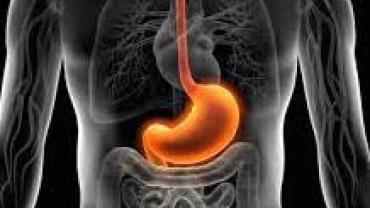
According to a new study published three days ago in The Journal of the American Medical Association researchers found the damage of the esophagus in gastroesophageal reflux disease (GERD) to be cytokine-mediated due to inflammation and not caused directly by the acid in the stomach.
For almost a century it has been assumed that damage to the lining of the esophagus is caused by the hydrochloric acid of the stomach. Now according to researchers at UT Southwestern Medical Center and the Dallas VA Medical Center this damage to the esophageal lining is occurring through an inflammatory response by cytokines.
This new information will probably not change the traditional approach to treating GERD in the immediate future but we may eventually see a shift to targeting the cytokines and inflammation which is really causing the damage to the esophagus.
This research builds on previous work in mice which demonstrated that it takes several weeks from the time stomach acid is introduced into the esophagus before damage occurs. If the damage is from HCl it should develop immediately.
Pharmaceutical interventions may provide symptom management of GERD but they do not correct many of the underlying factors and they have side effects. Recent studies have linked proton pump inhibitors (PPIs) to chronic kidney disease cardiovascular disease and an increase risk of a heart attack. PPIs can also lead to other problems such as small intestinal bacterial overgrowth (SIBO).
As practitioners we understand that an alternative approach is typically more effective than what is provided by PPIs and does not have side effects or other complications such mineral deficiencies bacterial infections and dysbiosis.
Interestingly alternative healthcare providers have been addressing the inflammatory aspect of GERD by supporting their patients with natural anti-inflammatory botanicals such as deglycyrrhizinated licorice (DGL) to help with dyspepsia and symptoms associated with this condition. DGL is a mucilaginous herb that coats and soothes inflamed gastric and intestinal tissue. It has been recognized for its anti-ulcer anti-inflammatory and healing effects on the esophageal lining (when using a chewable) and gastric mucosa.
In addition to DGL probiotics and glutamine may also be helpful in improving digestive function. We also see that Helicoacter pylori is a major cause of gastritis. both eradication of H. pylori and the healing and protection of inflamed mucosal tissue.
Dietary habits cannot be overlooked. Patients should consider eating smaller portions at meals. In addition they should avoid laying down immediately after meals and avoid eating before bedtime. Also they need to be aware that alcohol and specific foods can trigger symptoms. A well thought out combination of lifestyle changes and nutritional support is often sufficient to address acid reflux.
By Michael Jurgelewicz DC DACBN DCBCN